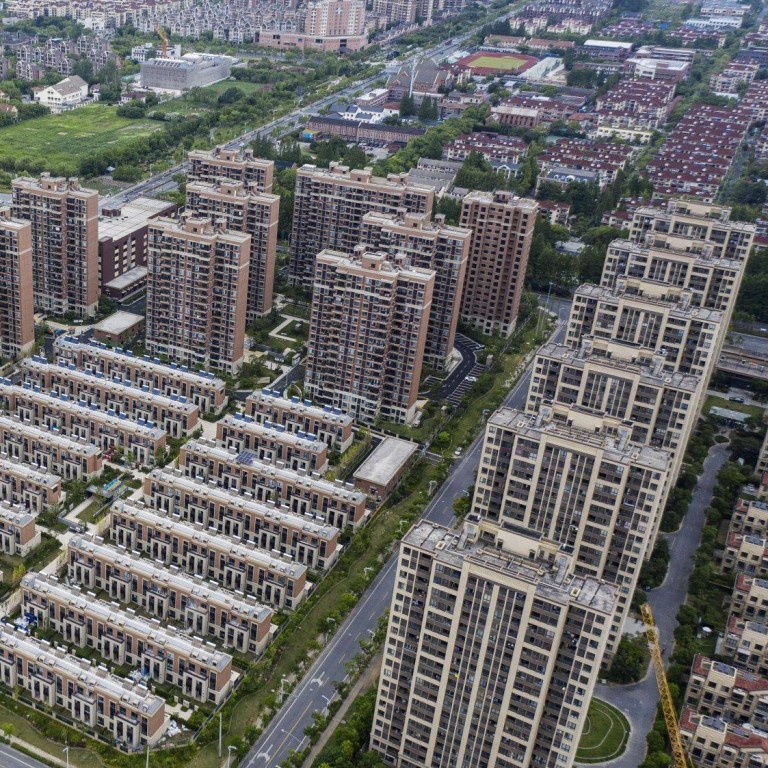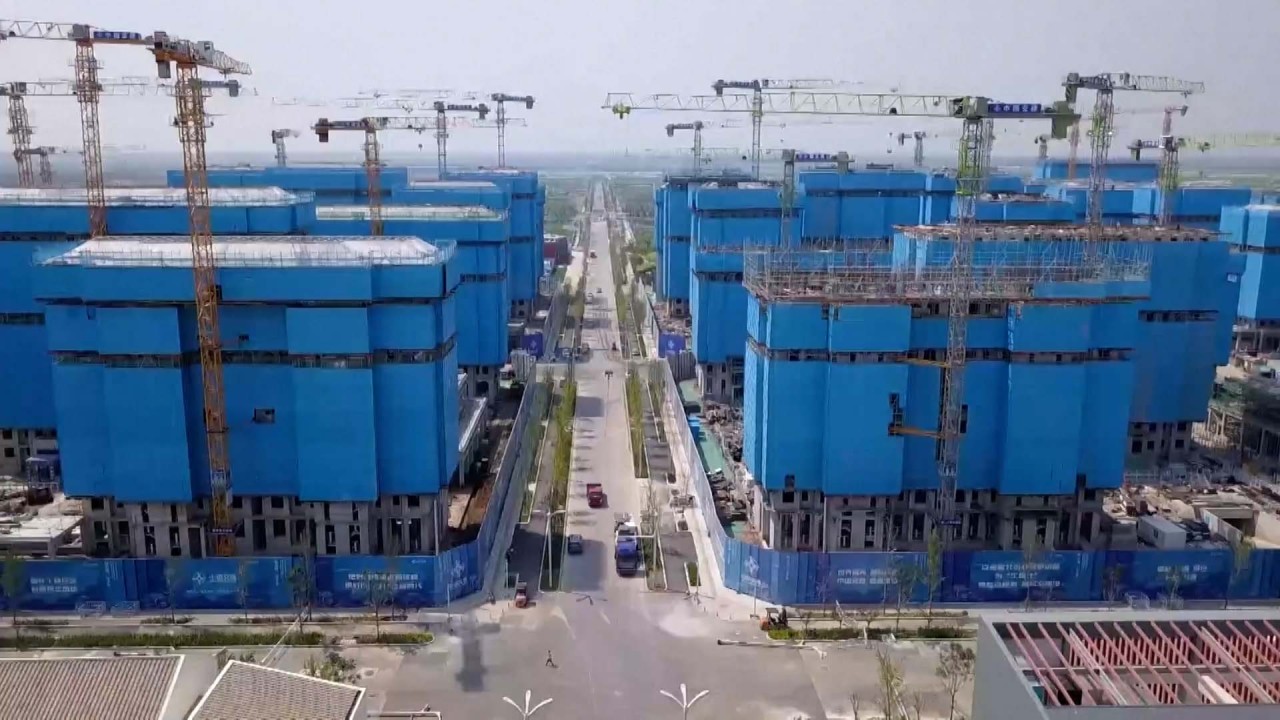
China facing more economic woes ahead of GDP release with mortgage boycott in over 80 cities
- Buyers of over 230 properties in 86 cities have joined together to collectively refuse to make mortgage payments for unfinished, pre-sold units unless construction resumes
- China is set to announce its second-quarter economic growth figure on Friday, with Chinese data provider Wind forecasting 1.1 per cent year on year growth
China’s economy, which is on course to record its lowest quarterly growth rate in two years, is facing fresh risks from an unfolding mortgage boycott quickly spreading across the country.
In the past week, buyers of more than 230 properties in 86 cities have joined together to collectively refuse to make mortgage payments for unfinished, pre-sold units unless construction resumes, according to real-time updates on software development platform Github under the “WeNeedHome” project.
It exposes more financial weakness and is set to affect already-shaken confidence in the system, according to independent economist Hong Hao.
Banks will have to write down loans, affecting their capital sufficiency and lending ability, at a time when bank lending is most needed to sustain growth
“Banks will have to write down loans, affecting their capital sufficiency and lending ability, at a time when bank lending is most needed to sustain growth,” said Hong.
The current economic slowdown, brought on by repeated lockdowns under China’s zero-Covid strategy, has weighed on both homebuyers and real estate developers.
Many have since experienced a liquidity crisis and missed payments on offshore high-yield US dollar bonds.
“If this trend spreads, it may have a negative impact on the property market. It will be detrimental for property sales and the stability of the financial systems,” said the state-backed Securities Times newspaper in a commentary on Wednesday.
“Allowing the unfinished projects to return to life and be delivered on time is beneficial to the stability of thousands of households.”
On Thursday, banks responded to the potential crisis by issuing statements to play down concerns.
Major lenders, including China Construction Bank, Agricultural Bank of China and Industrial Bank, said mortgages associated with unfinished, pre-sold homes from cash-strapped developers only make up a small proportion of their total homeowner loans and that overall risks are controllable.
But any potential defaults could have a wider negative impact on the banking system and the economy as a whole, said David Yin, vice-president and senior credit officer at Moody’s Investors Service.
“These defaults may further weaken homebuyers’ confidence and reduce banks’ risk appetite for mortgage loans, further dampening property sales,” Yin said.
Premier Li Keqiang said this week that the economy had been hit hard by unexpected factors in the second quarter, but that it had steadied and recovered in June. He also urged efforts to get the economy back on track as soon as possible, according to state media on Thursday.
The final solution is likely to be the government pushing for the completion of the construction and final delivery of those projects, maybe they will let the state-owned developers take over
Though financial stress is likely to keep building up in the corporate and household sectors, a subprime mortgage crisis like the one seen in the United States in 2008/09 is seen as being unlikely, as the banks in China are mostly owned by the government, which has the financial resources to help them if necessary, according to Zhang Zhiwei, chief economist at Pinpoint Asset Management.
“The final solution is likely to be the government pushing for the completion of the construction and final delivery of those projects, maybe they will let the state-owned developers take over,” Zhang said.
“And for the additional costs, the governments and the banks may need to negotiate, and the two may bear the loss together.”
Ding Shuang, chief economist for Greater China and North Asia at Standard Chartered, said the risks to the financial system may offer an opportunity for a quick solution.
“The actions from the homebuyers have added lots of pressure and create a sense of urgency for the government to take action,” he said.
“Because no one wants it to become a financial risk, it will be much more difficult to deal with if it becomes a systematic financial risk.”
The subtle political atmosphere, or the government’s obsession with social stability, ahead of China’s 20th Party Congress where President Xi Jinping is expected to start his third term as party secretary, may also help lead to a solution before it escalates, according to Wu Qiang, an independent Beijing-based political analyst.
“The victims of the unfinished homes are mostly from middle to lower class in small and medium-sized cities – the largest population group in China and the most important populous base of Xi’s rule,” Wu said.
“The unfinished houses are also their rigid demand, most of them saved money for years just for the down payment of a single apartment.”
The presales model is likely to result in a vicious cycle, while the increasingly infectious subvariants of Omicron may exacerbate the downward spiral
Real estate is the single largest component of household wealth in China, accounting for over 70 per cent, analysts said.
Presale is the most common way of selling homes in China and has significantly increased developers’ leverage, and this creates the danger of a credit crunch, especially when disorderly deleveraging takes place, according to a report by economists from Nomura, led by Lu Ting.
Nomura estimates that Chinese developers have only delivered around 60 per cent of pre-sold homes between 2013-20, with outstanding mortgage loans rising by 26.3 trillion yuan (US$3.9 trillion) during the same period.
“As an increasing number of developers have failed to build and deliver pre-sold homes in a timely manner, the presales model is likely to result in a vicious cycle, while the increasingly infectious subvariants of Omicron may exacerbate the downward spiral,” the report said.


